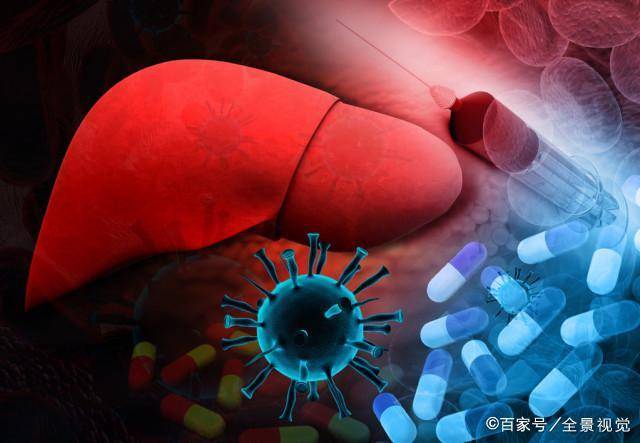In recent years, there are more and more young people with poor liver health, and liver problems are not easy to detect, so the mortality rate is also not low. So now the most important thing is to nourish the liver. Only when the liver is healthy, can the other functions of the body operate normally, making our body healthier without any life-threatening issues.
1. Reminder: For people with poor liver health, they should eat fewer daily portions of 3 types of vegetables. The more they eat, the worse their liver function may become.
Type 1: Uncured bracken fern
Bracken fern is a type of wild vegetable with good texture and contains many trace elements. Eating bracken fern regularly can effectively expand blood vessels, improve vascular permeability, so many people like to eat bracken fern.
However, it is important to note that bracken fern should be cured before consumption, and it is best not to eat the tenderest part of the bracken fern. This is because bracken fern contains bracken glycosides, which can cause significant damage to the liver cells. To reduce the risk of liver issues, it is recommended to blanch the bracken fern before consumption.
Type 2: Rootless mung bean sprouts
Compared to other varieties of bean sprouts, rootless mung bean sprouts are more popular because they do not have troublesome roots to deal with.
However, it is advisable not to consume too many rootless mung bean sprouts. It is better to take the trouble to remove the roots yourself rather than choosing rootless mung bean sprouts directly. During the growth of rootless mung bean sprouts, a large amount of rootless agents and preservatives along with other chemical substances are used, which can harm the liver upon consumption. Additionally, frequent consumption can lead to premature development in children, which is not conducive to overall health.
Type 3: Fresh daylily buds
Many people have tried daylily buds, which have a unique fragrance that is loved by many. However, remember that fresh daylily buds should not be consumed as they can harm human health.
Fresh daylily buds contain colchicine, which, once oxidized in the body, generates toxic substances. These substances are metabolized and broken down by the liver, causing a burden on the liver and potentially leading to liver damage and associated health issues.
2. If the body shows these 3 signs, they may be related to “liver damage,” and immediate liver care is necessary
Sign 1: Yellowing of the eyes
When the color of the iris is abnormal, but the sclera of the eyes is usually white. If suddenly the sclera turns yellow, and there are signs of facial yellowing, it may indicate liver damage.
After liver damage, liver function will be disrupted, specifically in terms of metabolism, which can result in the retention of bilirubin in the bloodstream. This excess bilirubin can flow to the eyes, coloring the sclera yellow, and gradually affecting the skin color.
Sign 2: Appearance of red spots on the body
The appearance of these red spots is due to elevated levels of estrogen in the body, which flow through the body’s capillaries, causing them to dilate and become congested, resulting in the spider-like red spots.
Since the liver is responsible for regulating estrogen levels, any liver issues can lead to a decrease in liver function, resulting in the appearance of these red spots.
Sign 3: Abnormal bleeding of the gums
When chewing on hard objects, gums tend to bleed easily. If your gums frequently bleed suddenly, it may be related to liver issues.
Most of the clotting factors in our body are synthesized by the liver. When the liver is damaged, the production of clotting factors decreases. A deficiency in clotting factors can lead to frequent bleeding, slow blood clotting after bleeding, with the gums being the most noticeable bleeding site. Therefore, frequent gum bleeding should be taken seriously.
3. To protect liver health and prevent liver problems, here are 2 liver care tips for you to remember and stick to
Tip 1: Stay hydrated regularly
Water is not only one of the main substances in the human body, but it also aids in metabolism and detoxification, which helps protect liver health.
Therefore, staying hydrated regularly is beneficial for the liver. To boost liver care effects, consider adding some dried chrysanthemum flowers to the water.
The chrysanthemum flowers contain chrysanthemums, amino acids, and alkaloids, which are beneficial components for the liver. They belong to the Chrysanthemum subgenus and are known as the “king of hundred chrysanthemums.”
Chrysanthemums and alkaloids can enhance liver cell repair and regeneration, help the liver eliminate toxins, reduce toxin damage to the liver;
Amino acids have a strong affinity for fats, attract fats, and break down fats for metabolism, reducing the burden on the liver.
Tip 2: Maintain a balanced diet
Food is essential to health, and a healthy diet is crucial for adequate nutrition and maintaining good health.
When eating meals daily, pay special attention to not consuming excessive oily foods, as this can lead to fat accumulation and fatty liver formation.
Avoid irregular eating habits and overeating, as this can increase the levels of free radicals in the body, harming liver health.
Try to consume less oil and salt, eat more fruits and vegetables daily, protect liver health, and reduce the burden on the liver.
4. Liver care trivia: Regular exercise is beneficial for the liver
Frequent physical activity can boost immunity, strengthen the body’s resistance to toxins, enhance other bodily functions’ ability to resist, and increase the liver’s resistance to toxins, effectively reducing instances of liver damage.
References
[1] Jiang Xiao, Zhao Chunyan, Luo Shujuan. A discussion on the relationship between liver health and longevity[C]// Forum on the broader traditional Chinese medicine thinking – Chinese medicine for “sub-healthy” and Fu Yang Forum. 2007.
[2] Yao Fanghao. Liver health care for middle-aged and elderly people[J]. Liver Doctor, 2013(06):54-55.
[3] Bianzhou. Practical liver care methods[J]. Health Home, 2019(3):53-61.
Image source: Internet


